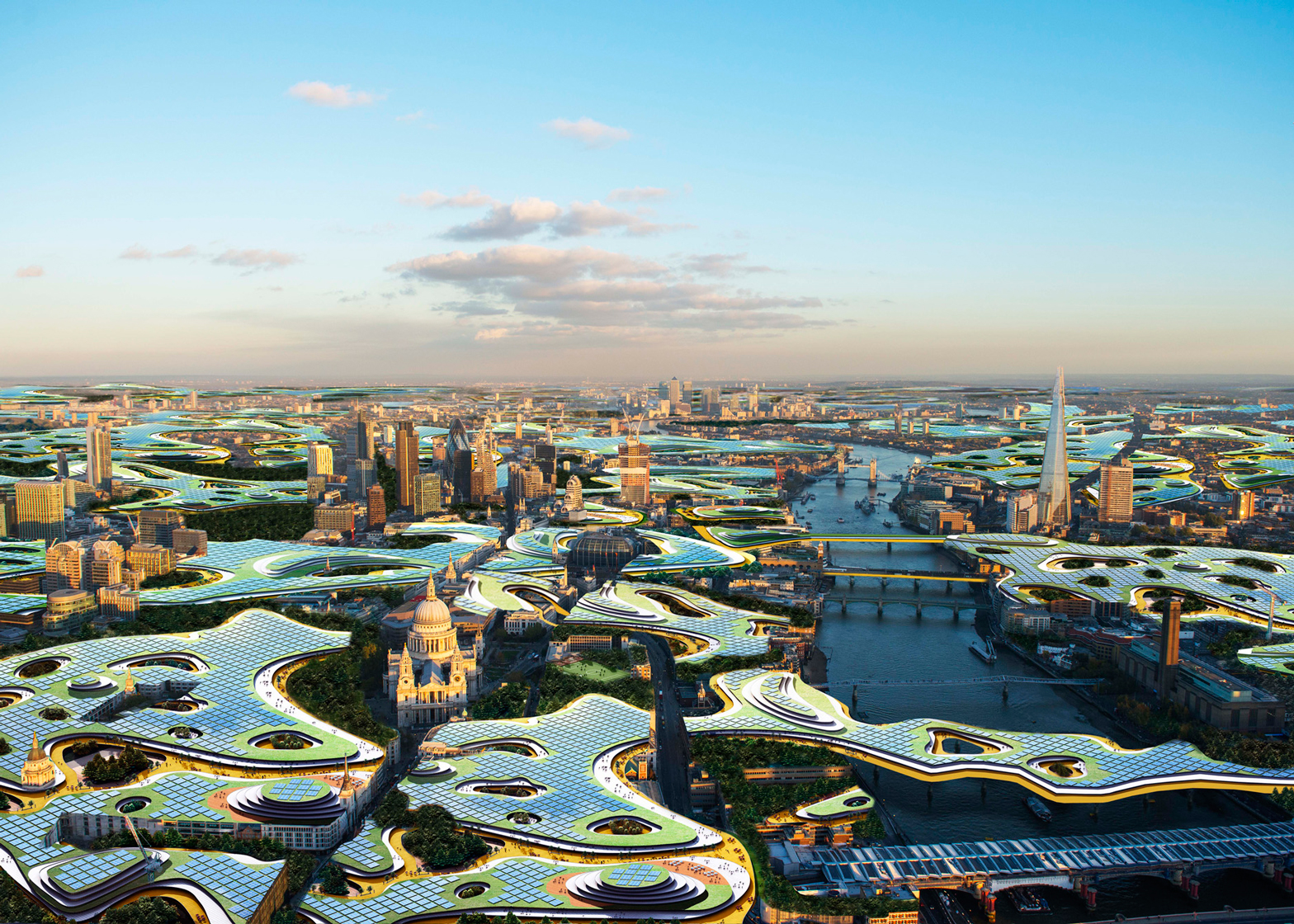LA-based architect Clive Wilkinson has drawn up conceptual plans for a giant shared office that would hover above London, enabling people to simply walk upstairs to their mobile workplace.
The Endless Workplace proposal was developed for Flaunt magazine, which commissioned the firm to "imagine an architectural cross-pollination of the two very separate and unique cultural milieus of California and London".
Clive Wilkinson has designed a number of high-profile office projects, including Google's Silicon Valley headquarters, for which he convinced the company to abandon the standard cubicle. "Cubicles are the worst – like chicken farming," he told Dezeen in an interview last year. "They are humiliating, disenfranchising and isolating."
For the Endless Workplace scheme, Wilkinson sought to offer a solution to escalating commute times.
"From our sun-bleached Californian point of view, we chose to investigate the current systemic problems of London, which has become almost paralysed by the clogged arteries of the city, with the consequent debilitating commute times for its workers," said Wilkinson.
Increasingly, people are spending up to four hours to get to and from work each day.
"The underground rail system is overloaded and prone to frequent system failures, the roads are almost grid-locked, and escalating land prices have compelled the workforce to live further and further away from their workplaces," the architect said.
His concept challenges the notion that a company's staff needs to be based in the same office, particularly given that technological advancements now support new ways of working.
"Our theoretical proposal was to 'carpet bomb' the city with a new type of workplace in a single, horizontally connected level," he said.
"The proposition imagines a mobile work mode where anyone can work anywhere, since technology now supports that, and so workers living in the existing infrastructure below can simply 'go upstairs to the office'."
The elevated workplace would feature an open plan with desks and other office amenities, along with a multitude of small parks. It would accommodate workers from both established companies and startups.
The concept not only eliminates commute times and reduces carbon emissions from cars, but also helps avoid the "numbing isolation of working at home".
"You are essentially in an endless co-working space, and will develop relationships with coworkers from different disciplines, ideally forming village-like communities," Wilkinson told Dezeen. "In that sense, it is very sociable."
"With this concept, one recovers something of the medieval model of collaborating with multiple disciplines in your local village and leveraging the healthy cross-pollination aspects of that," he added.
The concept further suggests that our existing urban models might be ill-suited for the "technologically liberated future".
"It may be a more invasive form of surgery that ultimately delivers new opportunities to spend time on things that we value," he said.
"We believe that limited examples of this idea are already in gestation," Wilkinson added. "And indeed, forms of the idea will evolve over time, as the mobility that technology now supports becomes the norm and creates new forms of urban living."
Born in Cape Town, South Africa, Clive Wilkinson founded his eponymous firm in 1991 in Los Angeles. Well known for its progressive office designs, the studio is currently exploring new strategies for congregating workers.
"Many of these schemes look intensively at privacy within the community – how to both concentrate individually and, at the same time, engage with one’s tribe," said Wilksinson.
Recent projects by his studio include the West Hollywood offices for the video production company Funny or Die and the California headquarters of Fox Head Inc, a motorcross apparel company.
Images are by Humberto Arreola.

